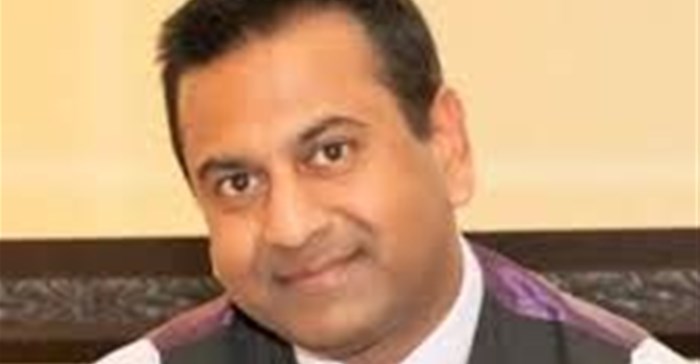The word 'cancer' invokes deep fear as a silent killer, with many viewing this disease as a symbol of grief and pain, a plague straining our intellectual and emotional resources.

Prof Vikash Sewram, director of the African Cancer Institute at the Faculty of Medicine and Health Sciences, Stellenbosch University
But our resilience and need to survive is a reflection of our human tenacity and an unwavering spirit to conquer the odds. It is this tenacity to continue the fight against cancer that has led to remarkable strides in better understanding the causes of the disease, the complexities regarding its biology, methods for prevention, screening, diagnosis and advances in cancer treatment.
The global cancer burden is estimated to have risen to 18.1-million new cases and 9.6-million deaths in 2018. One in five men and one in six women worldwide develop cancer during their lifetime, and one in eight men and one in 11 women die from the disease. Unless greater efforts are made to alter the course of the disease, this number is expected to rise to close to 30 million new cases by 2040.
With South Africa’s growing population of approximately 57-million and an ageing population, the local caseload is expected to double by 2040 as well. Cancer remains the the sixth main cause of death in South Africa and the latest data from the National Cancer Registry reveals that in 2014, close to 75,000 new cases were diagnosed. Cancers of the breast, cervix and prostate continue to dominate with a similar profile extending into Africa.
Early-stage detection
Cancer risk identification and prevention, along with advancements in early cancer detection and treatment, are emerging as critical national health issues that need to be addressed appropriately in order to improve the quality of life and life expectancy of South Africans. There is no ‘one’ solution to the country’s cancer problem. Decades of research and medical ingenuity have improved and extended the lives of many cancer patients, but despite these advances, a combined effort between the public and private sectors, academia, advocacy groups and patients is required to beat this complex disease.
There is an urgent need to increase early-stage cancer detection, screening and diagnosis to significantly improve cancer patients’ chances of survival and quality of life. Universally, the majority of cancers are amenable to early detection. When a cancer is detected at an early stage – and when coupled with appropriate treatment – the chance of survival beyond five years is dramatically higher than when detected at a later stage when the tumour has spread, and the disease is more advanced. Furthermore, early diagnosis can also reduce the cost of treatment. Despite this, millions of cancer cases are found late, leading to expensive and complex treatment options, diminished quality of life, and avoidable deaths.
Globally, barriers exist at the individual, health system and government level that prevent millions of people all over the world from receiving an early diagnosis and better treatment. There are huge disparities in health resources (infrastructure, human resources, access to treatment, etc.) that make populations in Africa, including South Africa, extremely vulnerable to developing and treating cancer.
South Africa is a country in transition, and as more people improve their social and economic circumstances and adopt a Western lifestyle, characterised by an unhealthy diet and physical inactivity, we are likely to experience a reduction in infection-based cancers, with a concomitant increase in cancers more prevalent in developed countries. This points to an increase in the incidence of breast, colorectal and prostate cancer, a worrying prospect, since breast and prostate cancers are already ranked among the primary female and male cancers.
Encouragement and support of spouses and family members are key to minimising individual-level barriers related to early detection, screening, and diagnosis. Feelings of shame and fear, combined with poor health awareness and cultural beliefs, can also keep an individual from utilising medical care or screening programmes. Prevention efforts linked to early detection and diagnosis are likely to offer improved prognosis and better outcomes. Prevention also offers the most cost‐effective long‐term strategy for the control of cancer. This goal is being viewed as more realistic, socially responsive and financially sound when compared to the aggressive therapeutic options of chemotherapy, surgery and radiation.
Health system-related barriers
Healthcare workers aren't always equipped to detect cancer early, especially at the primary care level. A lack of an efficient and timely referral for testing and diagnosis leads to needless delays in treatment.
Despite some of these setbacks, the South African National Department of Health must be congratulated on their efforts to place cancer on the National Health agenda. Drafting of the National Cancer Strategic Framework for South Africa and the finalisation of the breast and cervical cancer policies bear testimony to the strides that the government has taken. However continued efforts in strengthening the capacity of the health sector, improving access to treatments and supportive services remain core to curbing the rising epidemic of cancer.





































